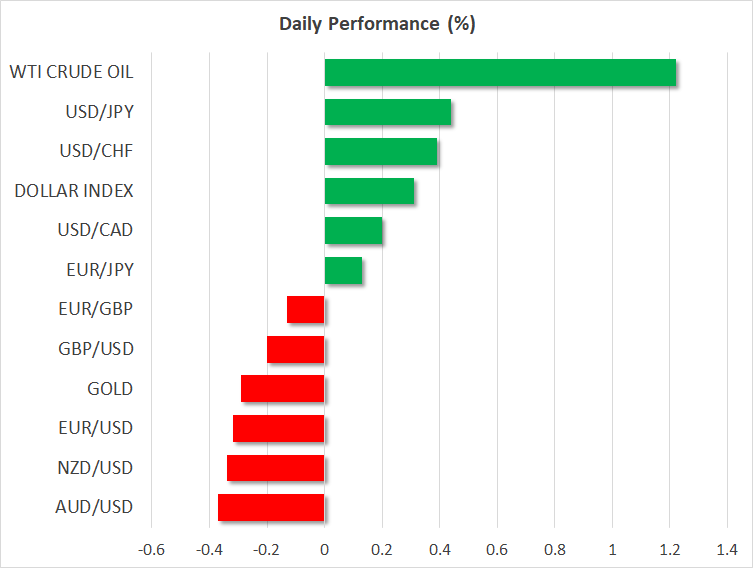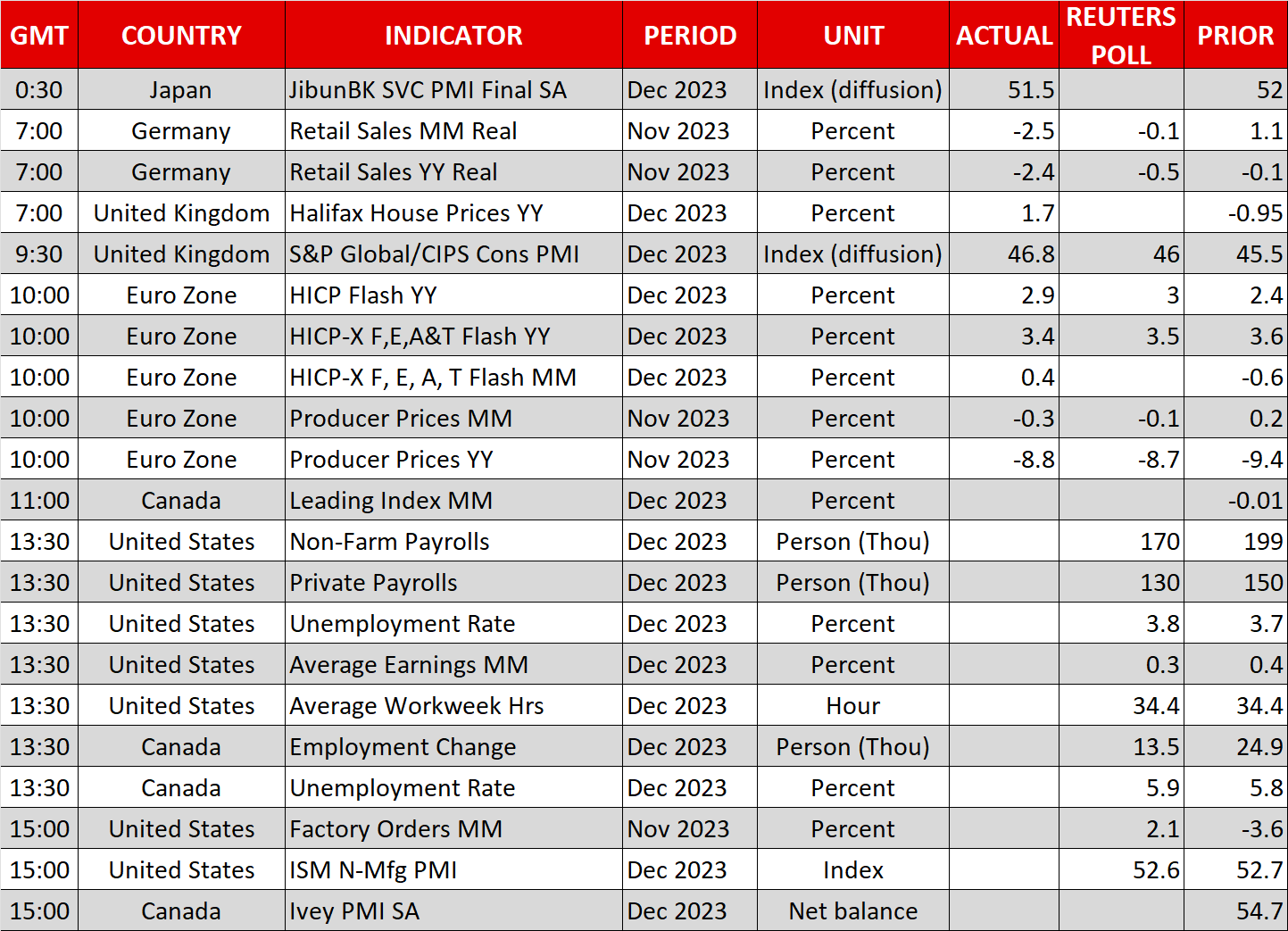- Upbeat US job indicators fuel expectations of a strong NFP report
- Yields and dollar jump, stocks pressured as rate cut bets go into reverse
- No boost for wounded euro from pickup in Eurozone inflation

Markets have second thoughts about big rate cuts
Expectations that the Federal Reserve would aggressively slash interest rates this year took a knock ahead of Friday’s nonfarm payrolls report as investors repositioned themselves following some upbeat data on Thursday. The number of Americans filing for unemployment benefits fell to 202k in the last week of December, while the four-week average also fell to a lowly 208k. A further sign of a still-hot labour market came from the ADP employment survey that showed 164k jobs were added in the private sector last month.
The data has raised the stakes ahead of today’s official payrolls figures, with consensus estimates edging up to 170k. The unemployment rate is still seen ticking up, however, to 3.8%, and wage growth probably eased to just below 4% y/y, and this may take the heat off any stronger-than-expected headline print.
But there seems to be a broader realisation in the markets that the wagers for a 150 basis points reduction in the Fed funds rate by December were overdone in the absence of weak economic indicators. Although the inflation side of the equation clearly points to somewhat looser monetary policy in the coming months, the Fed will have limited room to cut if the labour market remains as tight as it currently is.
Subsequently, investors have scaled back their rate cut bets to around 135 bps – with the first cut not fully priced in before May – triggering a wave of volatility in equity, bond and currency markets.
Dollar set for strong weekly gains as yen flounders
Treasury yields have spiked higher, with both the 5- and 10-year yields recovering back above 4.0%. The US dollar, meanwhile, is extending its week-long rebound, climbing to three-week highs against a basket of currencies on Friday, and looks set to enjoy its best week since May 2023.
The Japanese yen has come under the most pressure from the stronger greenback, which has reclaimed the 145-yen level for the first time since mid-December. Following the earthquake that struck Japan on New Year’s Day, expectations of a near-term policy shift by the Bank of Japan have diminished, weighing on the yen.
The Australian dollar also fell deeper into losses as the mood soured after a brief bounce yesterday. Sterling has been one of the more resilient currencies over the past week as the Bank of England is in less of a hurry to lower borrowing costs. Not only is UK inflation likely to take longer to be fully tamed, but also the British economy seems to still maintain some positive momentum.
Euro slips as ECB rate cut bets intact after CPI data
The euro on the other hand is battling growing expectations that the ECB will embark on a rate-cutting campaign by as early as April against a backdrop of falling inflation and a struggling Eurozone economy.
Inflation in the euro area accelerated to 2.9% y/y in December’s flash reading from 2.4% in the prior month, but this was slightly below forecasts of 3.0%. The core measure that excludes food and energy, as well tobacco and alcohol, also missed expectations, easing from 3.6% to 3.4%.
Whilst the pickup in inflation at the end of 2023 is a bit of a setback for the ECB, it’s likely to be a temporary one and the fact that underlying measures continue to decline only reinforces investors’ bets that rate cuts are on the way.
Tech stocks drag Wall Street lower
In equity markets, most major indices around the world were in the red on Friday as rising bond yields dampened sentiment. Stocks on Wall Street are headed for their first weekly loss since late October as investors pare back their dovish expectations for the Fed.
However, beyond Fed policy, there are some concerns as well about the outlook for corporate earnings in the US, which unusually, appears to be weighing more on big tech stocks this time. Apple (NASDAQ:AAPL) has suffered two analyst downgrades in as many days amid worries that iPhone sales are slowing.
The tech-heavy Nasdaq Composite closed 0.6% lower on Thursday and the S&P 500 was down 0.3%, though the Dow Jones managed to finish the session flat.

